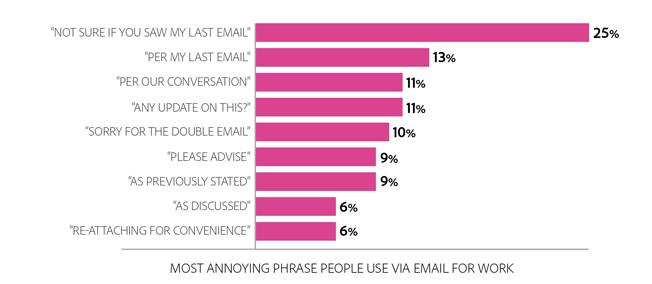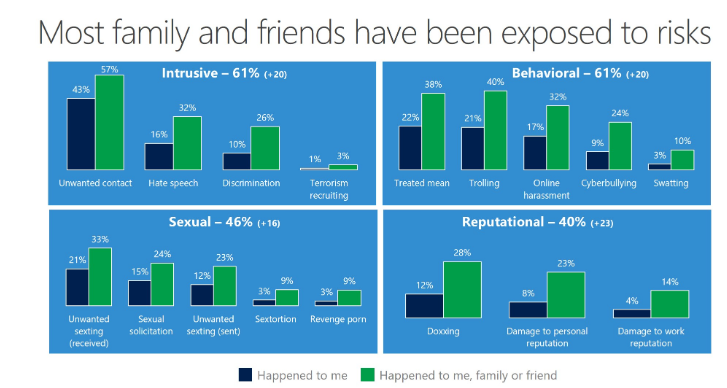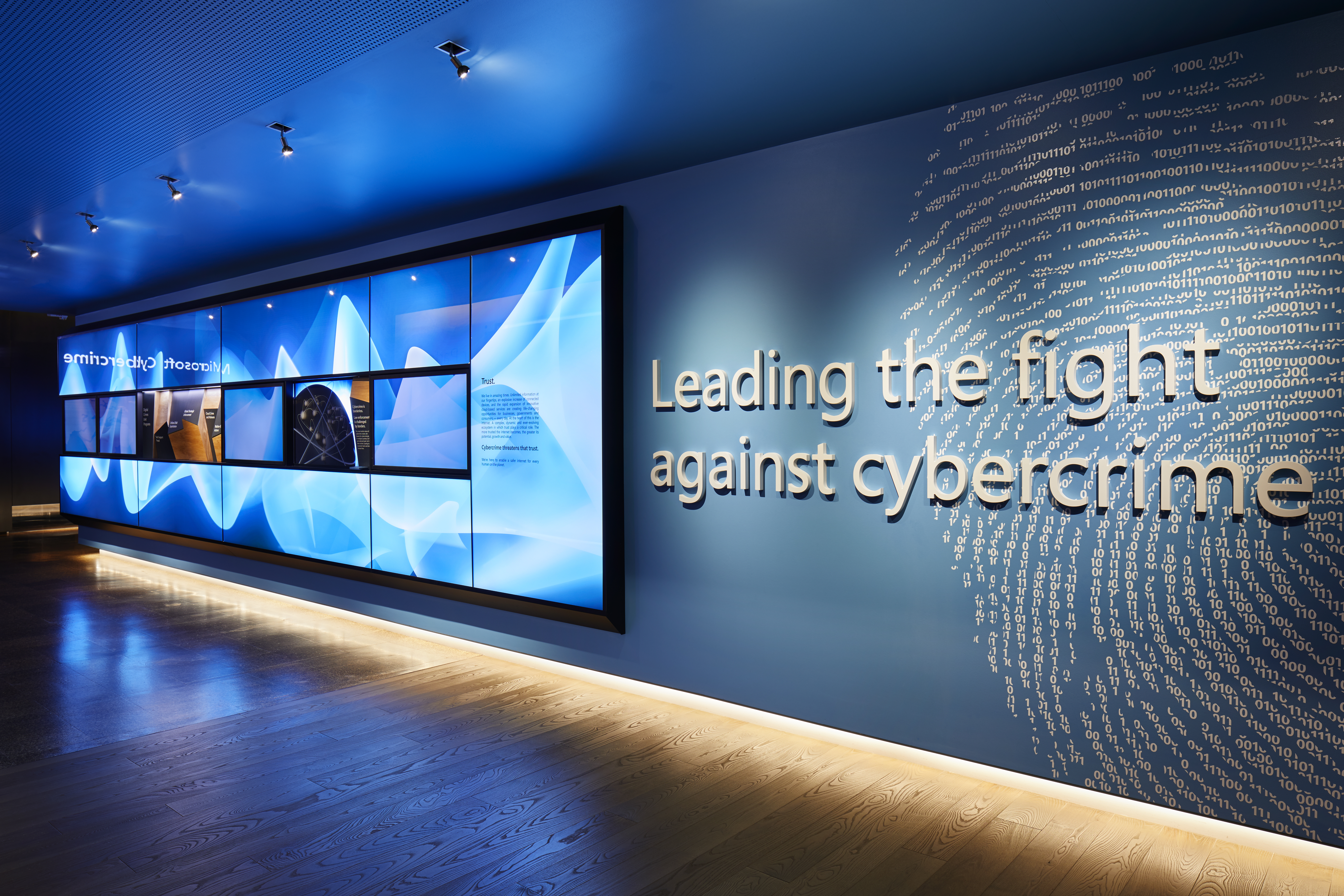How to maintain your manners in the digital age
“Not sure if you saw my last email.”
“Any update on this?”
“Per my last email.”
Chances are at least some of those phrases are familiar. They top the list of the most irritating phrases people use in work emails, according to a study by Adobe.
The average worker spends more than three hours a day in his or her inbox – and that time is increasing. By the end of this year, we’ll be sending 293 billion emails a day globally, according to market research from the Radicati Group. By 2023, projections put that figure at 347 billion.
[Subscribe to Microsoft on the Issues for more on the topics that matter most.]
In a world of growing online communications, our digital manners are ever more important.

Source: Adobe
In 2017, Microsoft established its Digital Civility Index, measuring people’s exposure to online risks in different types of online interactions, such as trolling, mean behavior or harassment. The index measures teen and adult perceptions about the extent to which they are at risk of damaging online interactions. It ranks 22 countries by order of online civility.

Source: Microsoft
In the Digital Civility Index, the United Kingdom and the United States have emerged as strong performers, with several countries improving their standing over the past three years. However, adverse behavior is still pervasive, with people at risk from emotional and psychological damage due to their online interactions.
So how do we translate this to our own lives? Here are four practical ways to practice safer, healthier online interactions in your everyday life.
Show empathy
Think about the spirit in which a message will be read and understood, rather than seeing it from your perspective as the writer. The golden rule is to act with empathy, compassion and kindness in every interaction, treating everyone with dignity and respect.
Pause before replying
Receiving an unhelpful email at the wrong moment can easily elicit an angry, terse or sarcastic response. Never reply in anger, on the spur of the moment or with a quip that seemed funny at the time but could be misconstrued later.
Respect differences
Disagreeing with another person’s perspective is fine. It’s a matter of how that disagreement is expressed. Diverse perspectives should always be appreciated and acknowledged, and any disagreement should be about the substance of the work rather than a personal attack. Making room for differences helps to break down echo chambers and can be constructive, sparking inspiration.
Stand up for yourself and others
It’s easy to simply fire off negative feedback or delegate a whole series of tasks via email. It’s far less easy to receive such emails and find an appropriate way to respond. Lead by example by celebrating positives and make sure that you don’t perpetuate the issue by forwarding or further circulating problem emails.
For more on our Digital Civility Index and to see how you score, visit our Digital Civility Challenge site. And follow @MSFTIssues on Twitter.









